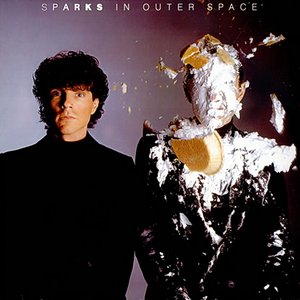From the Oral History Center Director — July 2021
I recently had the pleasure of watching a new documentary film, The Sparks Brothers (2021), which details the solidly unconventional musical career of Ron and Russell Mael, lifetime stalwarts of the band Sparks. This film has everything one might want from a rock and roll documentary: rare footage of live performances, insightful commentary from artists influenced by the band (Beck, Bjork, Weird Al), and a narrative charting several artistic ups and downs. You might watch it and think that you caught an episode of “Behind the Music” (without the cliche visits to Betty Ford) or This is Spinal Tap (the new wave remix). But the thing about this film that really caught my attention — and got me thinking about our work at OHC — is how revealing and edifying a full life history can be (as is done with The Sparks Brothers as well as with many of our oral histories).

Growing up in California in the early 1980s, Sparks originally came to me as another hip, ironic, proudly nerdy Los Angeles new wave band. Surely the first song of theirs I heard was “Cool Places,” an absurdly upbeat synthpop song performed with and co-written by Jane Weidlin of the Go-Go’s. I saved my pennies and soon purchased the album (Sparks in Outer Space) and loved most every song. I followed their career through another few albums then, as teenagers do, moved on to other bands and sounds. To me Sparks remained in my memory as a genre-band — a very good one, but still one of a particular type.
Watching this full-life documentary, however, upset my own memories of this band. It revealed parts of their lives (including telling moments of their childhood) that were unknown to me. It showcased their early years as a Zappa-like freak band, their move to England where they earned fans as glam-rockers, their burgeoning interest in synthesizers and ultimately their collaboration with synth-god Giorgio Moroder, and finally their return to Los Angeles and reincarnation as a new wave band. The film also details the years since the 1980s, which took the pair in even more esoteric musical directions while continuing to win new fans, garner critical accolades, and stage frankly amazing artistic achievements. After watching this video, I am now eager to dig deeper into their music and thus discover bits of pop music past that thus far had been hidden to me. New music need not emanate from this day and age after all.
This is one of the reasons that I think the life history interviews we do at the Oral History Center are so incredibly valuable. When we conduct this type of oral history (ten hours or more with a single individual) we not only have the opportunity to ask the obvious questions (“tell me about the research that led to your Nobel Prize?” “What was it like to win at the Supreme Court?”), we are afforded the freedom to explore the lesser known aspects of a narrator’s life. With the additional hours of interviewing, we can document the narrator’s family background, upbringing, and education. We can detail early career moves that maybe didn’t amount to much but which taught crucial life lessons. We can document failures as well as successes. In my interview with Herb Donaldson, the first gay man appointed as a judge in California, I also learned about his side job as a coffee importer and roaster who gave key advice to a certain coffee shop getting started in Seattle (yes, Starbucks). With former Kaiser Permanente CEO George Halvorson, I got a fascinating account of his establishing a new health system in rural Uganda. And in my in-progress interview with famed Newsweek and Vanity Fair reporter Maureen Orth, there’s a lengthy description of her two years in the Peace Corps. While perhaps not what these people are best known for, these “other projects” not only provide great insight into the individual but often offer useful insights into historical events. Sometimes you think you know the whole story, or at least the most important part of that story. But when you read — or conduct — life history interviews, you soon learn that all parts are important and those less regarded can be the most surprising.
In this spirit of uncovering less known accomplishments, I want to pay tribute to Bancroft staff who recently retired. At the end of June we witnessed the departures of Bancroft Director Elaine Tennant (also a renowned scholar of German literature and culture), Deputy Director Peter Hanff (also a recognized expert in all things Wizard of Oz, which he detailed in his oral history), finance manager Meilin Huang (also the savior of the Oral History Center on many occasions), and photographic curator Jack von Euw (also an excellent curator of many Bancroft exhibits). We bid farewell to these four esteemed colleagues. We hope that retirement adds several new and interesting chapters to already very accomplished lives.
Find these and all our oral histories from the search feature on our home page. You can search by name, key word, and several other criteria.
Martin Meeker, Charles B. Faulhaber Director, Oral History Center